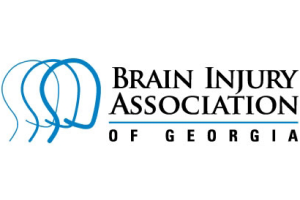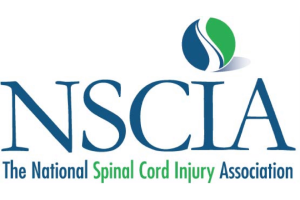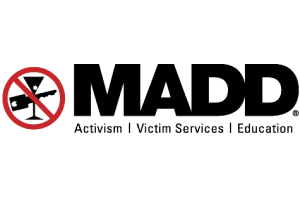Dram Shop Liability
Georgia Attorneys Pursuing Dram Shop Lawsuits
Involving Negligent Service of Alcohol
to Intoxicated or Underage Drivers
The Atlanta-based lawyers at Ragland Law Firm, LLC consider dram shop and social host liability to be one of their primary areas of practice. These Georgia DUI civil lawyers only represent the victims of drunk driving in civil cases. They never represent or defend drunk drivers in civil or criminal cases. As their strong support of MADD Georgia shows, attorney Daniel Ragland is dedicated to the campaign to stop drunk driving and prevent the use of alcohol by underage teenagers. This campaign includes using Georgia’s dram shop laws to hold liquor stores, convenience stores, bars, nightclubs, restaurants and other businesses liable when they illegally sell alcohol to a minor or negligently serve alcohol to an intoxicated adult. Likewise, the campaign against drunk driving and underage drinking involves the use of Georgia’s social host laws to hold parents, homeowners, employers and party sponsors accountable when they illegally or negligently provide alcohol to an intoxicated or underage driver. Any victim of a drunk driving crash should immediately retain a Georgia DUI civil attorney to investigate whether there are meritorious dram shop or social host claims against the individual or business responsible for supplying the adult or underage drunk driver with alcohol.
Experienced Atlanta Dram Shop Liability Attorney
Attorney Daniel Ragland has considerable experience in the area of “Dram Shop Liability” and “Social Host Liability.” On behalf of drunk driving victims, he has successfully handled numerous personal injury and wrongful death lawsuits in which a claim for dram shop or social host liability was included. Located in Atlanta, Mr. Ragland has litigated dram shop and social host cases in many parts of Georgia and Florida. He has actually taken several dram shop cases to trial in Georgia. He is frequently asked by Mothers Against Drunk Driving (MADD) to give lectures on the topics of Dram Shop Liability and Social Host Liability. Mr. Ragland is considered a leading legal authority in this area. He knows the liquor liability laws in Georgia, Florida, Alabama, Tennessee and South Carolina and is available to consider handling dram shop cases in all these states. Visit our Case Results page to learn more about some of the particular dram shop lawsuits Mr. Ragland has successfully handled.
Drunk Driving Victims in Georgia and Other States
Should Consider “Dram Shop” and “Social Host” Liability Lawsuits
It is a proven fact that alcohol impairment makes a driver significantly less safe and, as a result, directly causes a significant number of motor vehicle accidents in Georgia and other states. Moreover, it is also a well documented fact that drunk driving crashes tend to result in a relative higher incidence of fatality and serious injury than non-alcohol related traffic accidents. In other words, victims are more likely to be killed or sustain disabling injuries in a crash caused by an intoxicated driver than an accident caused by a sober driver. Therefore, it is not uncommon for death or serious injury to result from a drunk driving crash.
In light of these facts, drunk driving victims often have an especially compelling need to pursue claims against not only the impaired driver, but also any other parties whose negligence may have contributed to the crash. One such culpable party could be the person or business responsible for having sold or provided alcohol to the drunk driver in a unlawful or negligent manner. Where there is evidence that an unlawful service of alcohol was made to an underage driver or noticeably intoxicated adult who then causes an alcohol impaired crash, the victim should consider pursuing a “Dram Shop” or “Social Host” claim or lawsuit.
Defining “Dram Shop Liability and Social Host Liability”
The terms “dram shop liability” and “social host liability” refer to civil cases in which a victim alleges that by unlawfully furnishing alcohol to an underage driver (under 21 years old) or by continuing to serve alcoholic beverages to a visibly intoxicated adult, that provider of alcohol is legally responsible for any injuries or deaths arising from a crash caused by the drunk driver to whom alcohol was negligently supplied. Stated differently, dram shop or social host claims involve the imposition of liability upon the party which illegally sold or negligently served alcoholic beverages to someone who later operated a motor vehicle while intoxicated, thereby causing a collision in which an innocent third party was killed or injured.
“Dram shop” lawsuits involve claims against bars, nightclubs, sports arenas, restaurants, concessionaires, liquor stores, convenience stores and other commercial vendors of alcohol. “Social host” lawsuits involve claims against homeowners, clubs, fraternities, employers and individuals who host social functions at which alcoholic beverages are served on a gratuitous basis. Defendants in dram shop cases are typically licensed to sell alcoholic beverages, whereas defendants in social host cases are not. Unlike many other states, Georgia does not make any distinction between dram shop and social host liability claims. Both claims are permitted under the same circumstances.
Dram Shop and Social Host Laws Are Very Different in Each State
Dram shop and social host liability is governed exclusively by the laws in each state. There is no federal law or national standard applicable to dram shop or social host liability. Unfortunately, there is little uniformity among the 50 states and dram shop laws vary substantially from one state to another. Indeed, there are still eight states (Arkansas, Delaware, Kansas, Maryland, Nebraska, Nevada, South Dakota, and Virginia) which do not allow any dram shop or social host claims under any circumstances. The remaining 42 states (and the District of Columbia) have at least some dram shop and/or social host law, but they differ in terms of which types of claims they will allow. Like Georgia, some states have dram shop statutes whereas other states rely soley upon appellate court decisions to establish dram shop and/or social host liability. Some states allow dram shop claims, but do not allow social host claims. Other states, like Georgia, recognize both dram shop and social host liability. Some states only allow a claim where the drunk driver is below the age of 21, whereas others also allow a claim where the continued service of alcohol was made to a visibly intoxicated adult. Whether a drunk driving victim can pursue a dram shop or social host claim under the particular circumstances involved will depend upon the statutes and law of the state where his or her crash took place.
Georgia’s Dram Shop Act
In 1988, the Georgia General Assembly enacted the Georgia Dram Shop Act (O.C.G.A. § 51-1-40) which essentially codified the Georgia Supreme Court’s landmark decision in Sutter v. Hutchins , 254 Ga. 194 (1985). That statute makes no distinction between commercial vendors and social hosts. Thus, in Georgia, dram shop and social host liability are treated alike and the same elements of proof apply to each claim.
Georgia’s Dram Shop Act begins by prohibiting the drunk driver from recovering damages against the person or business who sold or served him alcoholic beverages even where he sustains injuries of his own in a one or two car accident. O.C.G.A. § 51-1-40(a). In the statute, the Georgia General Assembly expressed the view that one’s consumption of alcohol, rather than the sale or service of alcohol to that person, is the sole proximate cause of a collision involving the alcohol impaired motorist. Therefore, the statute itself precludes the drunk driver from pursuing a dram shop or social host claim under any circumstances. Because of this statutory language, Georgia appellate courts have ruled that neither the person consuming the alcohol nor the parents of a minor who is unlawfully served alcohol can recover damages in cases involving death or injuries suffered by the person who became intoxicated from the negligently served alcohol.
On the other hand, the statute allows an innocent third party (someone other than the drunk driver) to bring civil claims against either a commercial vendor or social host in two limited circumstances: (1) where alcoholic beverages are sold or furnished to a person who is not of the lawful drinking age with knowledge that the underage drinker will soon be driving a motor vehicle; or (2) where alcoholic beverages are sold or furnished to a person who is in a “state of noticeable intoxication” with knowledge that such person will soon be driving a motor vehicle. O.C.G.A. § 51-1-40(b).
Overview of Social Host and Dram Shop Law in Georgia
In Georgia, dram shop liability and social host liability are governed by the above referenced Dram Shop Act (O.C.G.A. § 51-1-40) and decisions of the Georgia appellate courts interpreting that statute. In Georgia, dram shop and social host claims can be asserted by innocent drivers whose vehicle is struck by an alcohol-impaired driver. In addition to the innocent driver of the struck vehicle, any passengers of that vehicle may also bring dram shop or social host claims. Pedestrians struck and killed or injured by a drunk driver are also eligible to assert claims of dram shop or social host liability in Georgia. Finally, even the passengers inside the drunk driver’s vehicle are allowed to pursue dram shop and social host lawsuits. Only the drunk driver and family members of the drunk driver are precluded from making a dram shop or social host claim against the negligent provider of alcohol. In sum, under Georgia law, all victims of a drunk driving crash, except the drunk driver and his family, are allowed to pursue dram shop or social host claims where the facts warrant such a claim.
There are only two types of dram shop and social host claims allowed in Georgia. The first involves an unlawful service of alcohol to an underaged motorist (i.e. someone who has not reached the lawful drinking age of 21). The second type of dram shop or social host claim involves the negligent service of alcohol to someone who was in a “state of noticeable intoxication.” O.C.G.A. § 51-1-40(b). Georgia’s Dram Shop Act is not a strict liability statute and the mere service of any alcohol to a driver who later causes an alcohol impaired crash is not a sufficient basis for dram shop or social host liability. Instead, under Georgia law, dram shop or social host liability must be based upon the illegal sale or service of alcohol to someone under the legal drinking age, or the continued service of alcohol to someone after they had become “noticeably intoxicated.” Thus, as to the latter situation, selling or providing alcohol to a sober adult or someone who is not yet “noticeably intoxicated” does not give rise to dram shop or social host liability in Georgia. Instead, the drunk driving victim must show that the dram shop or social host defendant failed to stop serving alcohol to a person after he or she had become “noticeably intoxicated.”
Proof Needed in a Georgia Dram Shop or Social Host Lawsuit
To establish a dram shop or social host claim in Georgia, the drunk driving victim must prove each of the following:
- that the defendant willfully and unlawfully sold or furnished alcohol to a person “not of the lawful drinking age” (i.e. under 21), or that the defendant knowingly sold or furnished alcohol to a person “who is in a state of noticeable intoxication;
- that at the time of such unlawful or negligent sale or service of alcohol, the defendant knew that the person would “soon be driving a motor vehicle;” and
- that such sale or service of alcohol contributed to the driver’s intoxication and that such impaired driving led to a crash in which an innocent victim was killed or injured.
Georgia appellate courts have held that the victim need only prove that the defendant should have known that the person was not of the lawful drinking age. The plaintiff is not required to establish that the defendant had actual knowledge that the eventual drunk driver was underage. However, the statute also provides a special rebuttable defense in the case of an alleged sale of alcohol to an underage patron. If a person who is not yet 21 presents a fake I.D., then a rebuttable presumption arises that the defendant did not willfully or knowingly sell or serve alcohol to an underage drinker. O.C.G.A. §51-1-40(c)
Whether someone was in a “state of noticeable intoxication” at the time a sale or service of alcohol was made is largely a factual question which must take into account all the available evidence. There is no precise definition or standard under Georgia law for what constitutes “noticeable intoxication.” Therefore, the jury will usually have to resolve this issue based upon all the facts and their own idea of what it means for a person to be in “a state of noticeable intoxication.” The Georgia appellate courts have held that drunk driving victims only have to prove that the defendant knew or should have known that the eventual drunk driver was “noticeably intoxicated” at the time alcohol was furnished. In a very important decision, the Georgia Supreme Court has held that plaintiffs may utilize expert testimony to help prove that at a given BAC level, the drunk driver likely appeared to be “noticeably intoxicated” at the time he or she was sold or served alcoholic beverages. See Northside Equities, Inc v. Hulsey , 275 Ga. 364 (2002). In addition to proving that the defendant supplied alcohol to a person not of lawful drinking age or to a noticeably intoxicated adult, the victim must also prove that the defendant made such sale or service with knowledge that the drinker would “soon be driving a motor vehicle.” The Georgia appellate courts have held that this requirement of the Dram Shop Act can be satisfied with direct or circumstantial evidence establishing that the alcohol provider “in the exercise of reasonable care should have known” that the noticeably intoxicated person would “soon be driving a motor vehicle.”
Mere Ownership of Premises Cannot Support Liquor Liability in Georgia
In order for a person or business entity to be held liable for damages in a civil dram shop or social host case in Georgia, the defendant must be directly involved in the sale or service of alcohol to the underage or noticeably intoxicated person whose impaired driving subsequently causes a car accident. For example, mere ownership of the residence, building or premises in which the alcohol was furnished is not a sufficient basis upon which to establish a dram shop or social host case.
Liability Insurance Not a Requirement for a Georgia Liquor License
Unfortunately, a nightclub, bar, liquor store, restaurant or other business can obtain a license to sell alcohol in Georgia without proof of liability insurance which would pay a verdict or judgment rendered in a dram shop or social host lawsuit. It makes no sense that Georgia law requires all drivers to carry liability insurance, but not require vendors of alcohol to carry insurance as a precondition for having a liquor license. Even when a business carries liability insurance, that policy might contain a liquor liability exclusion which exempts coverage for dram shop claims. Regrettably, the Georgia Court of Appeals has repeatedly upheld such liquor liability exclusions and concluded that they do not violate the public policy of Georgia as set forth in the Georgia Dram Shop Act.
In light of this, dram shop lawsuits often must be pursued against commercial establishments that have no liability insurance to cover the claims asserted by the drunk driving victim. Some states that have dram shop laws also require that businesses carry liability insurance in order to receive or keep their state license to serve alcohol. Ragland Law Firm, LLC recommends that Georgia enact similar legislation that would make liability insurance mandatory for all liquor licensees and any entity in the business of selling alcohol. Such legislation should also provide that liquor liability policy exclusions are unenforceable in Georgia because they violate the public policy of this state.
Atlanta Lawyers Handling Dram Shop
Liability Cases Anywhere in Georgia and Neighboring States
We are experienced Georgia Dram Shop Liability attorneys. We invite you to contact us if you believe the drunk driver who caused your injuries or the death of your family member was negligently or unlawfully served alcoholic beverages by his employer or by a bar, nightclub, restaurant, convention center, sporting venue, liquor store, convenience store or some other business. We are willing to review and possibly handle any liquor liability case anywhere in Georgia, South Carolina, Alabama, Tennessee or Florida.
More Information, Legal Analysis and Resources
Can Be Found In Our Dram Shop Liability Information Center
We invite you to visit our DUI Crashes/Dram Shop Liability Information Center which provides additional discussion, legal analysis and information about civil claims and lawsuits against drunk drivers, and against the persons or businesses which unlawfully serve them alcohol.
We have also prepared Suggestions About What To Do and Not To Do Following a Drunk Driving Crash which we invite you to review. This page contains general information about what should be done after a drunk driving crash, and specific information about what can be done if the victim suspects that the drunk driver was unlawfully or negligently furnished alcohol before the accident.










